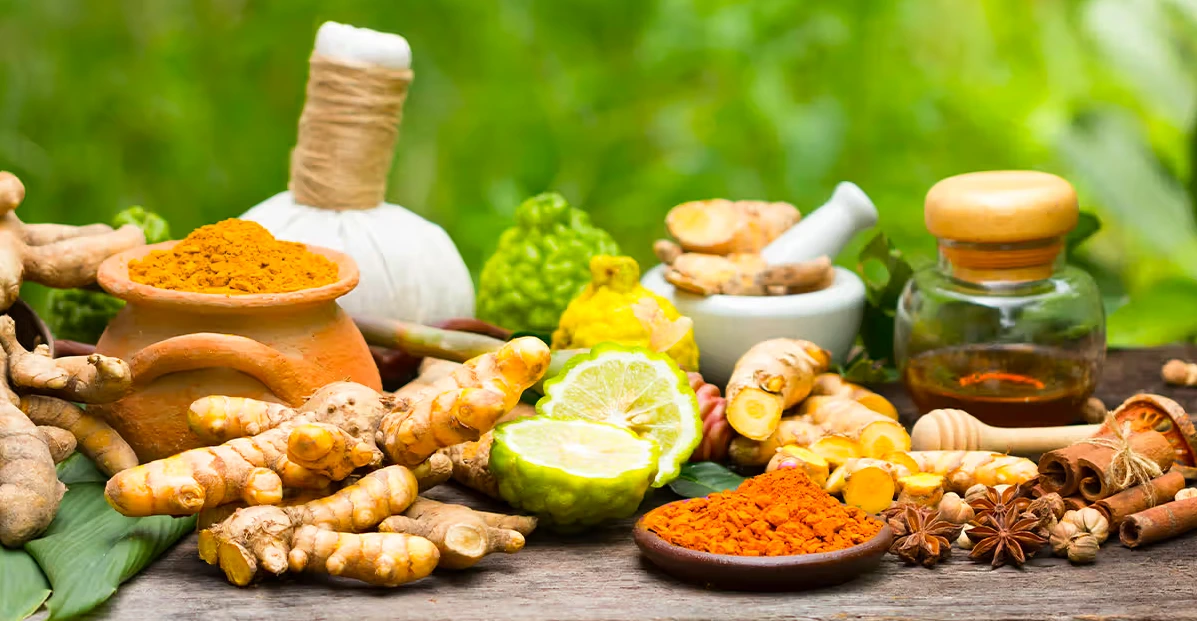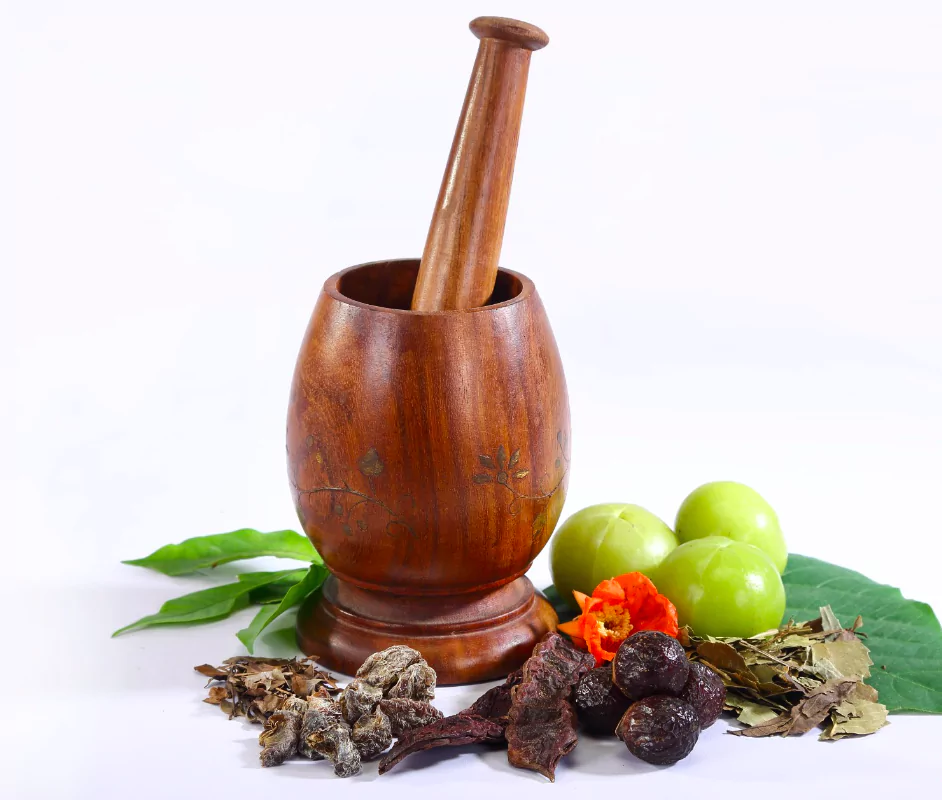Here are some Ayurvedic treatments that can help you effectively treat your sore throat.
Even though viral infections are one of the causes of sore throats, there are other possible causes as well. The chilly air during the winter can be extremely harmful to your health and cause dry, itchy throats.
An age-old remedy known to relieve sore throats is gargling with salt water and drinking enough of water. You can try these additional Ayurvedic remedies:
- Licorice
Ayurvedic mulethi, also called licorice or “sweet wood,” is a useful herb for cough. The application of mulethi powder helps relieve cough, sore throat, and overproduction of mucus in the respiratory tract.
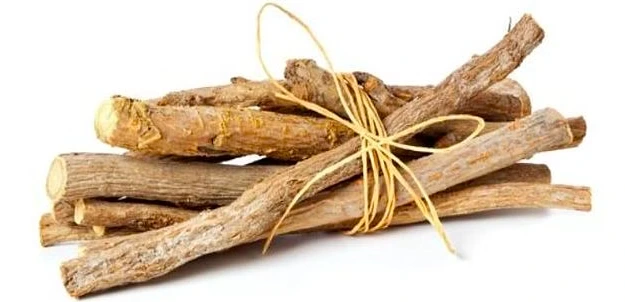
How Licorice works
Mulethi possesses expectorant qualities. It thins and relaxes the mucus lining the respiratory tract. This lessens congestion and eases coughing.
How to take Ayurvedic Licorice
1. Mulethi water
- Pour one glass of warm water with one teaspoon of the Mulethi powder.
- Consume this twice daily.
2. Mulethi tea
- Boil some water and add one small piece of mulethi root to it.
- After adding the grated ginger.
- Simmer for about five minutes.
- Pour in a tea bag, then sip this tea twice daily.
3. Mulethi kadha
- Add a pinch of cinnamon powder, black pepper powder, 1/4 teaspoon mulethi powder, and a few tulsi leaves.
- Mix with one cup of hot water.
- Simmer for five minutes.
- Spoon into a cup and top with 1 tsp honey.
- Consume this kadha twice daily.
One of the many health advantages of this fragrant, woodsy spice is that it relieves cough and cold symptoms. It is excellent for relieving a sore throat in addition to treating the common cold.Any Indian kitchen will likely have cinnamon sticks and powder, which can help soothe sore throats.
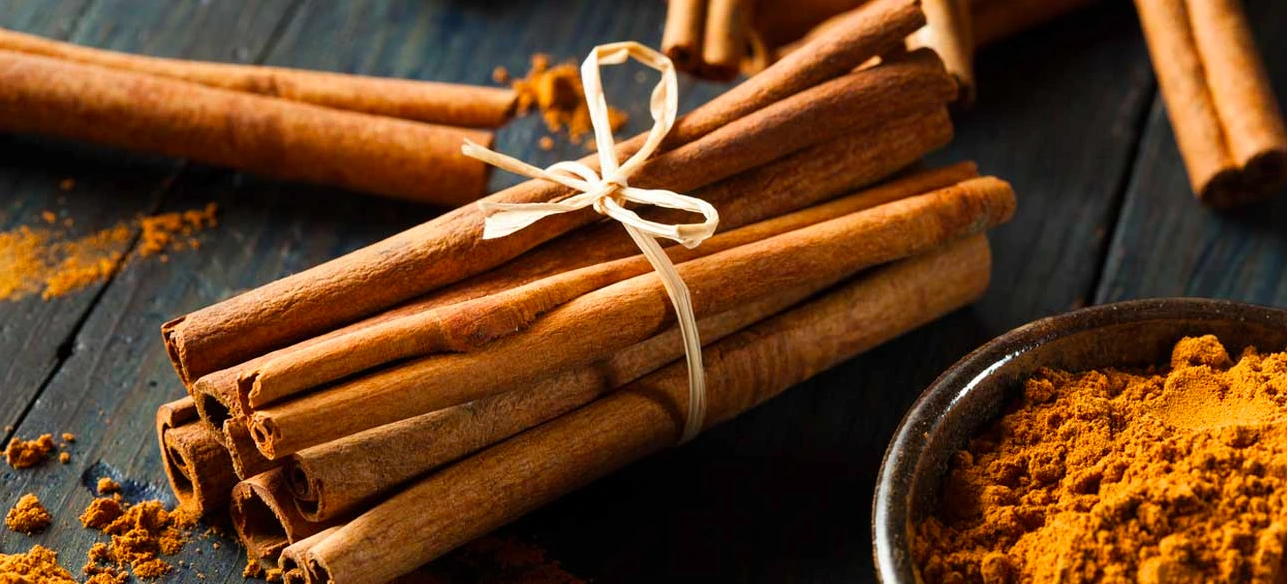
How Cinnamon works
It is well known that cinnamon has antiviral properties. This aids in the defence against the common cold-causing virus. Additionally, it contains anti-inflammatory qualities that aid in relieving sore throats.
How to take Ayurvedic Cinnamon
1. Cinnamon tea
- Pour yourself a cup of black tea as usual.
- Give it a dash of cinnamon powder.
- Two to three times a day, sip it.
2. Cinnamon with honey
- Add 1/4 teaspoon of cinnamon powder to 1 teaspoon of honey.
- For at least three days, combine and take twice a day.
- Tulsi leaves
Tulsi leaves have many health benefits because of their medicinal properties. One of the best herbs for fighting viruses is tulsi, which also works wonders for colds, coughs, and sore throats.
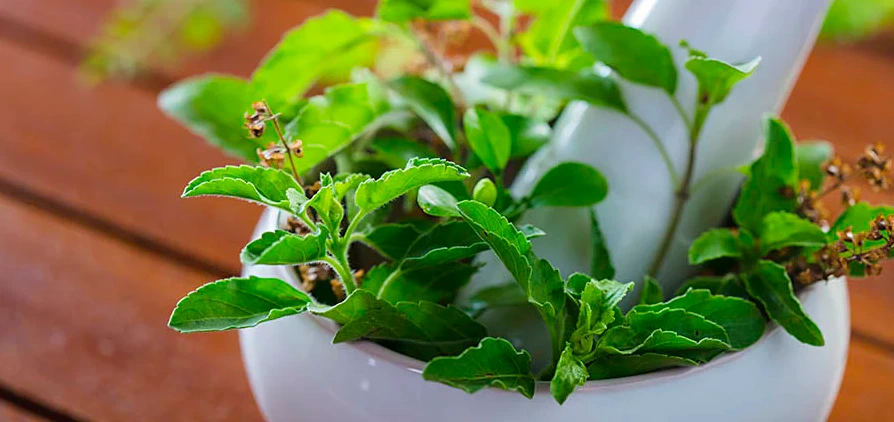
How Tulsi leaves work
By increasing the generation of antibodies, tulsi helps to stop infections before they start. Tulsi has the ability to relieve coughs. By assisting you in clearing the mucus from your cough, it helps relax your airways.
How to take Ayurvedic Tulsi leaves
1. Tulsi leaves
- Chew four to five tulsi leaves as soon as you wake up.
- Tulsi leaves are still a good way to strengthen your immunity.
2. Tulsi kadha
- Pick up some tulsi leaves. Give it a thorough wash.
- Put the tulsi leaves in a pan of boiling water.
- Add 5–6 peppercorns and 1 teaspoon of grated ginger to it.
- For a minimum of ten minutes, boil the mixture.
- Lastly, squeeze in a quarter of a lemon and sprinkle with black salt.
- Allow it to remain for a minute.
- After straining, sip it warm.
3. Tulsi Tea
- Pour 1½ cups of water over some fresh tulsi leaves.
- Boil for ten minutes over a medium heat.
- Using a strainer, drain the water.
- Stir in the lemon juice.
- Warm beverages can help relieve cold and cough symptoms.
- Honey
Honey has a tonne of antimicrobial qualities, which not only make it delicious but also relieve sore throats. It works well to suppress coughing. Honey is a natural wonder that helps to improve digestion and speed up your metabolism.
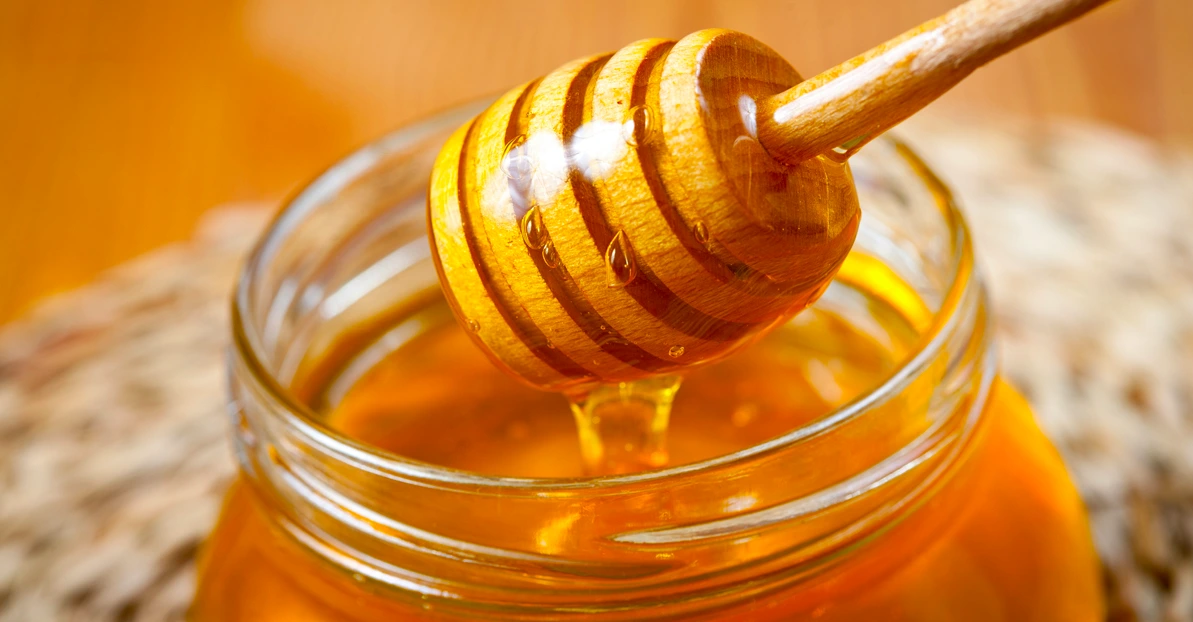
How Honey works
By facilitating the coughing up of thick mucus, honey relieves congestion in the chest. This reduces wet cough.
How to take Ayurvedic Honey
- To lessen the intensity of your cough at night, take a teaspoon of honey before bed.
- Continue until your cough does not go away.
1. Honey in Ginger Juice
- Measure out one teaspoon of honey.
- Add a pinch of black pepper and one teaspoon of ginger juice.
- For relief from a sore throat and cough, take once in the morning and once before bed at night.
2. Honey in Hot Beverage
- Use your preferred hot tea or just hot water.
- Put in some honey.
- Add lemon (just for flavour).
While the lemon juice can help with congestion, the honey soothes. Additionally, you can add honey to your tea in place of sugar.
- Dry ginger
Commonly referred to as soith, sukku, or soonth, dry ginger is a primary component found in herbal cough syrups. When taken with honey, sonth acts as a cold and cough reliever.
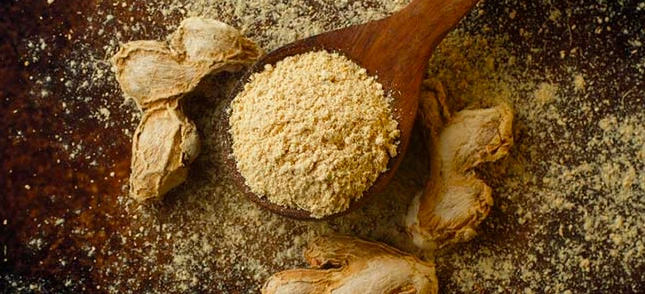
How Dry ginger works
Certain molecules found in sonth have anti-inflammatory qualities. This lessens sore throat discomfort.
How to take Ayurvedic Dry ginger
1. Sonth with honey
- Combine 1/4 teaspoon sesame seeds with 1 teaspoon honey.
- For at least three days, thoroughly mix and take twice daily.
2. Sonth Goli
- Put 2 to 3 tablespoons of desi ghee in a pan. Maintain a low flame.
- Melt the jaggery powder by adding two to three teaspoons.
- Stir in 2 to 3 tablespoons sesame powder.
- Blend thoroughly.
- Let it cool.
- Form into small, bite-sized balls.
- One goli may be taken twice a day.
Read more:
World Pneumonia Day: All you Need to Know About It
ए2 घी और इसके अद्भुत फायदे | A2 Ghee in Hindi

